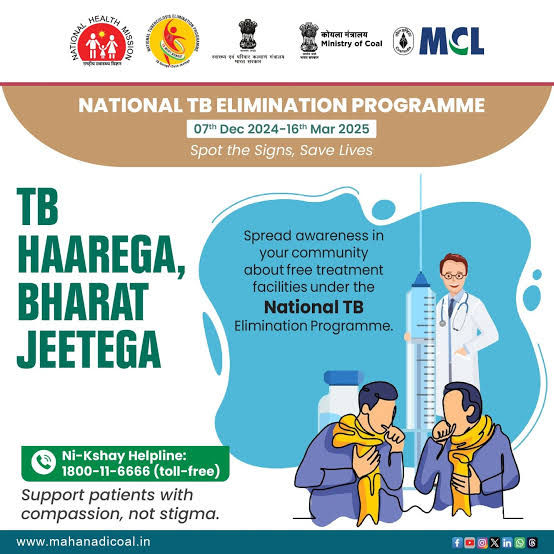Tuberculosis
- Smriti IASxp

- Jan 24, 2025
- 2 min read
Updated: Jan 25, 2025
(GS Paper II: Governance, Constitution, Polity, Social Justice and International Relations)
India has made remarkable progress in its fight against tuberculosis (TB), achieving a 17.7% reduction in TB incidence between 2015 and 2023, more than twice the global average of 8.3%, according to the WHO's Global Tuberculosis Report 2024.

This achievement underscores the effectiveness of the National Tuberculosis Elimination Programme (NTEP), which integrates advanced diagnostic tools, preventive care, patient support initiatives, and cross-sector collaborations to reach the ambitious target of eliminating TB by 2025.
Tuberculosis (TB) is a serious infectious disease primarily affecting the lungs. It's caused by the bacterium Mycobacterium tuberculosis

India has launched a significant campaign to combat tuberculosis (TB):
100-Day TB Elimination Campaign:
Focus: To intensify efforts in finding and treating missing TB cases, particularly in high-risk groups.
Implementation: Across 347 districts in 33 states.
Goals:
Enhance TB case detection
Reduce diagnostic delays
Improve treatment outcomes
Pradhan Mantri TB Mukt Bharat Abhiyan (PMTBMBA):
Objective: To provide comprehensive support to TB patients, including nutritional, diagnostic, and vocational assistance.
Key elements: Community engagement and support for individuals affected by TB.

Key aspects of India's TB control efforts:
Revised National Tuberculosis Control Program (RNTCP): A flagship program for TB control in India, focusing on early diagnosis and effective treatment.
Focus on vulnerable populations: Special attention is given to high-risk groups such as people living with HIV/AIDS, children, and marginalized communities.
Use of advanced diagnostics: Improved access to diagnostic tools like GeneXpert for rapid and accurate TB diagnosis.
Ni-kshay Poshan Yojana: A nutritional support program for TB patients.
Challenges:
High burden of disease: India has a significant burden of TB cases.
Reaching marginalized populations: Ensuring access to diagnosis and treatment for all, especially in remote and underserved areas.
Addressing stigma and discrimination: Reducing social stigma associated with TB can encourage early diagnosis and treatment

Prevention:
Vaccination (BCG vaccine) is available but not always effective.
Early diagnosis and treatment of people with active TB.
Improving ventilation in crowded areas.
Thanks For Visiting!!





Comments